Our next Easter STEM challenge is to build a harness to safely transport a small egg down a zip wire. Once you've built a suitable harness for a chocolate egg, you could try a real egg ( maybe boil it first ) and test to see if the harness works for that as well.
We've got plenty of other Easter STEM Challenges to keep you busy too including eggy toothpick towers, magnet-powered egg cars and lots more easy STEM for kids.
Chocolate EGG STEM Challenge
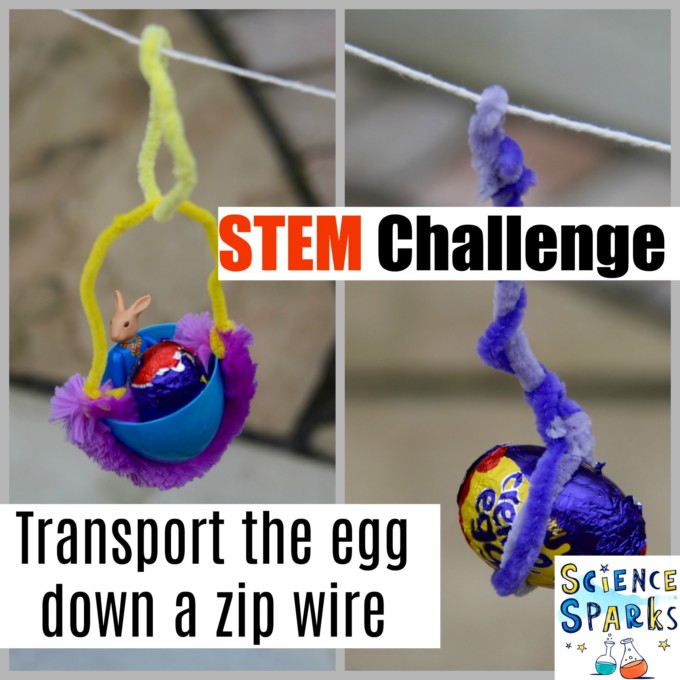
What you'll need to make an egg zip wire
String, wire or wool
Pipe cleaners and straws
Plastic eggs/chocolate eggs/eggs
Timer
Egg Zip Line Method
This is another great activity for learning about setting up an investigation as a fair test.
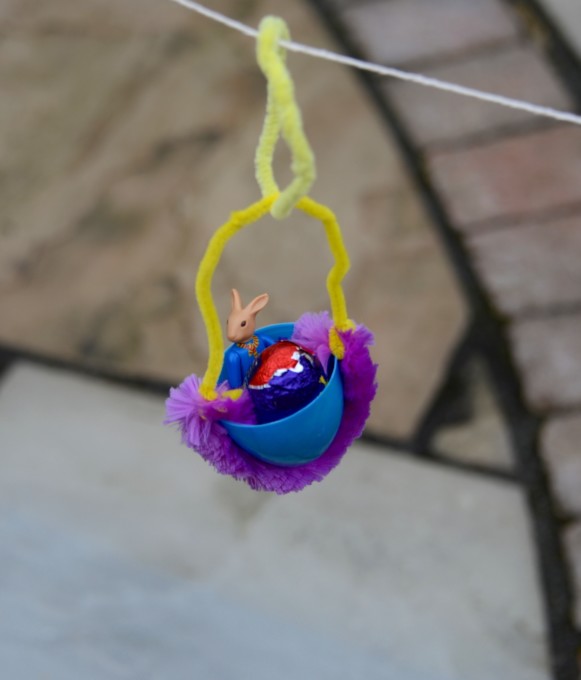
Easter STEM Challenge - variables
Type of zip wire
The incline of the zip wire
Weight of egg
Type of harness
To test one variable, all the others must remain the same each time you test. For example, to investigate whether the weight of the egg changes how long it takes to travel down the zip wire, keep the type of wire, incline and harness exactly the same and change ONLY the weight of the egg. We usually repeat each test 3 times and calculate the average time.
Once you've identified the variables, choose one to test. If you want to investigate how the material the zip wire is made from affects the speed the egg travels down the wire, you'll need to use the same harness, same egg and have the zip wire at the same incline when you test each type of zip wire.
Things to think about
Friction - we found our egg took longer to travel down a zip wire made with rough string than smooth wire, this is because there was more friction between the rough string and harness than smooth string and harness.
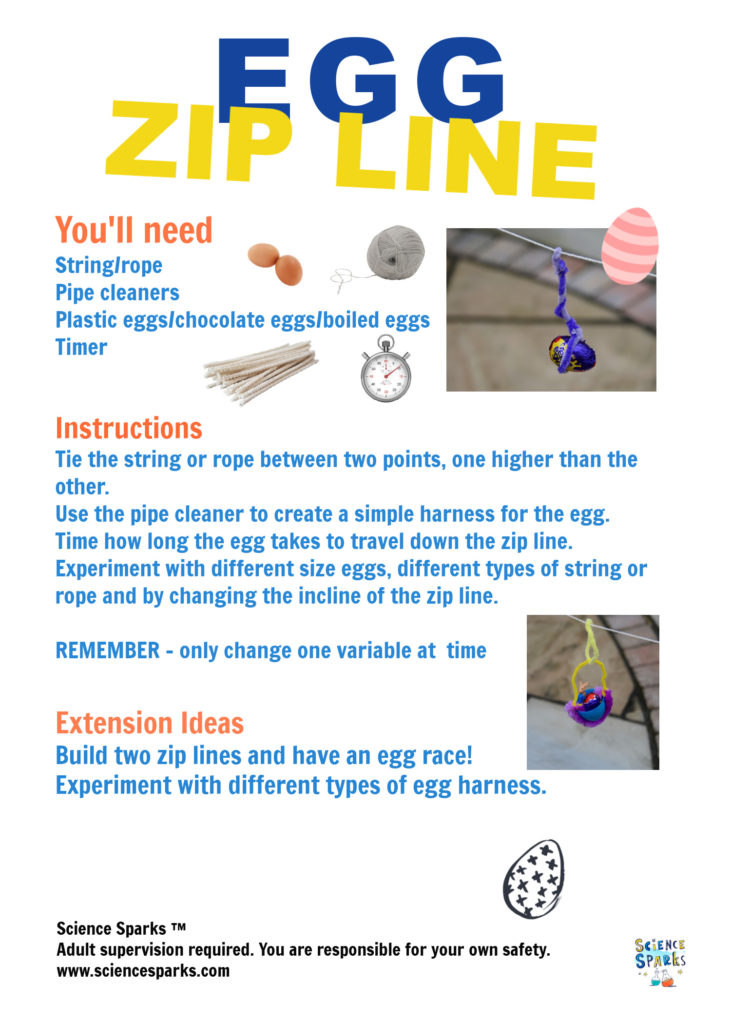
More Easter STEM Challenges
Try a harness made using a segment of straw running over the zip wire. The inside of a straw is smooth meaning there shouldn't be much friction between the straw and the wire.
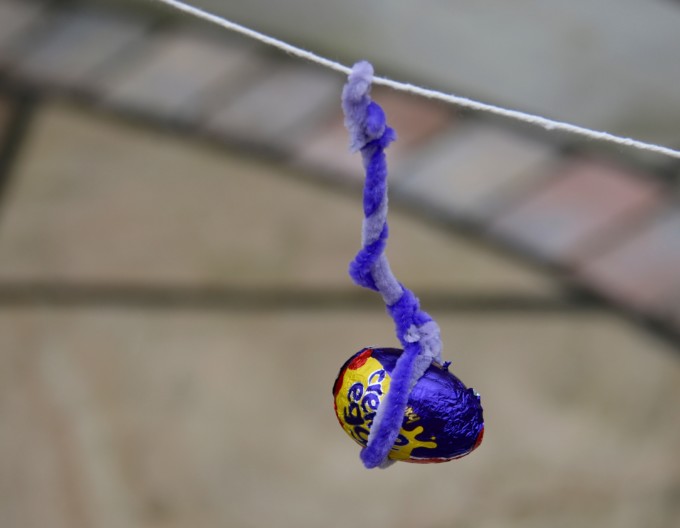
More Friction Investigations
Try this easy slipping and sliding activity as a simple introduction to the concept of friction.
Try these easy force investigations including friction, air resistance and gravity.
More Easter Experiments for Kids
As well as Easter experiments we've also got some fun eggy experiments for kids too!
Buy our NEW book!
Did you know I have several science books available? Rocket Science is full of easy and exciting space-themed activities perfect for kids of all ages, and Snackable Science has 60 exciting edible tests and experiments.
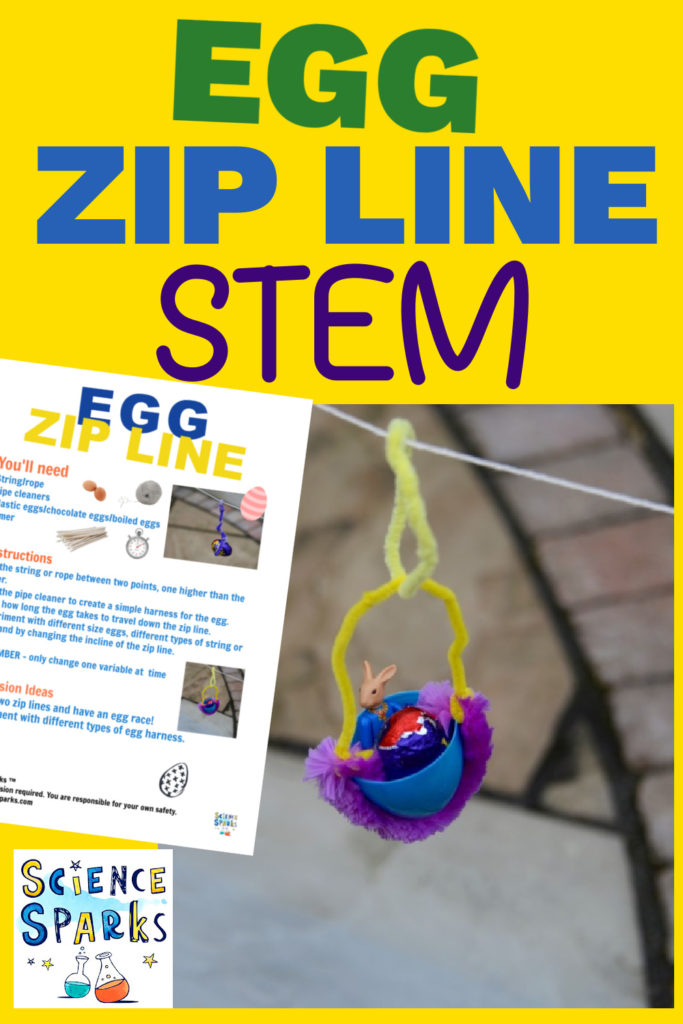
Affiliate links
Last Updated on June 30, 2025 by Emma Vanstone
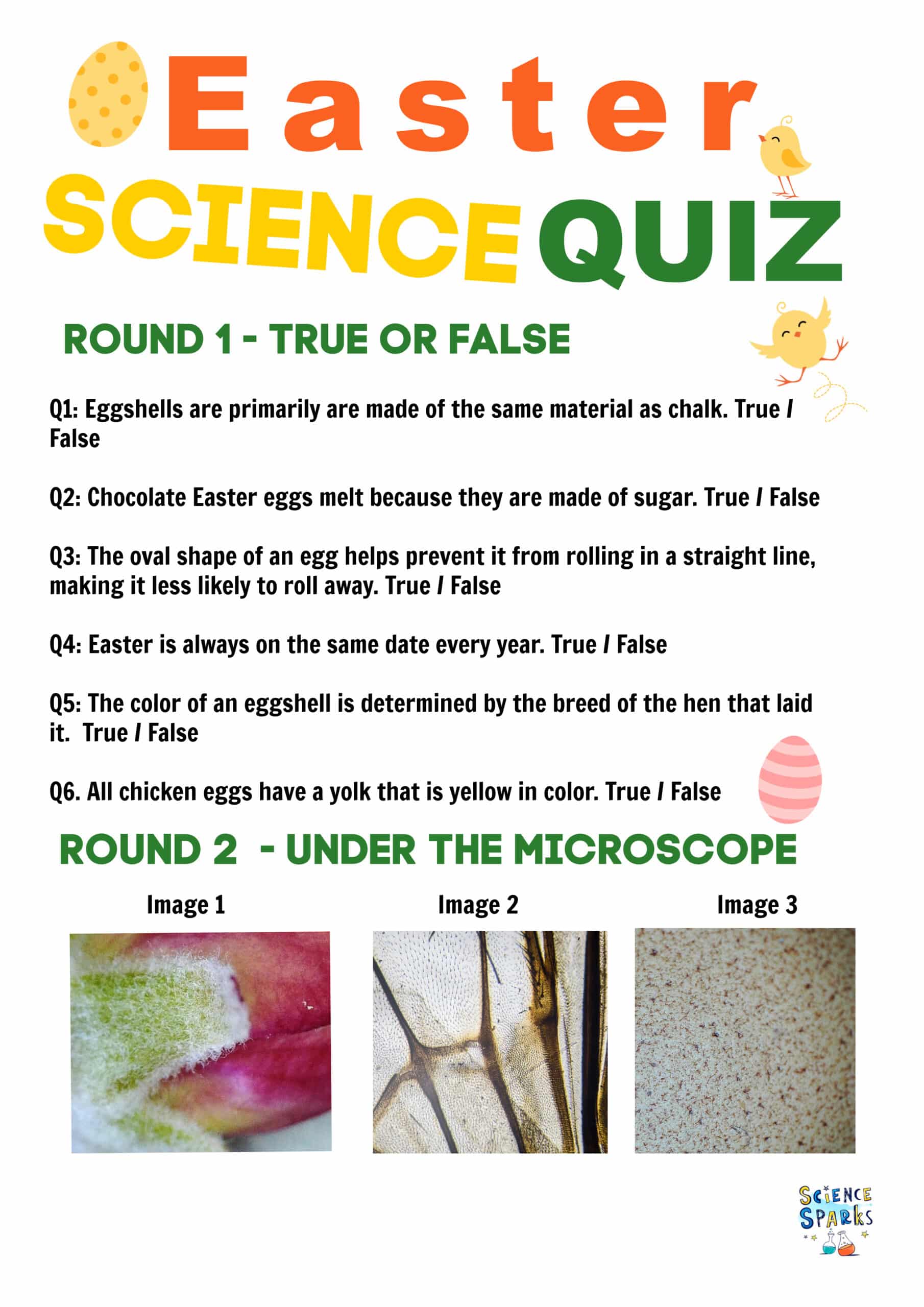
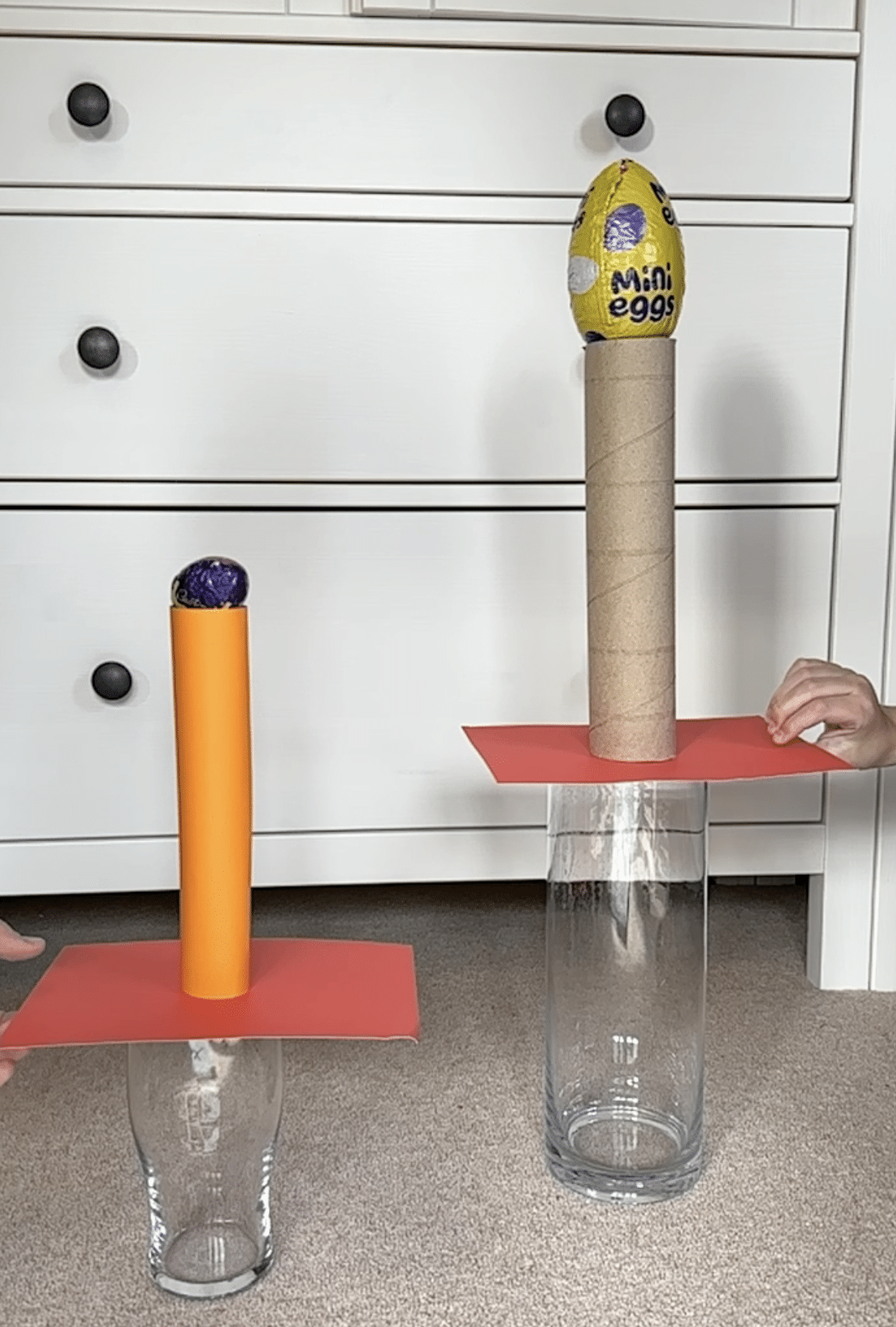
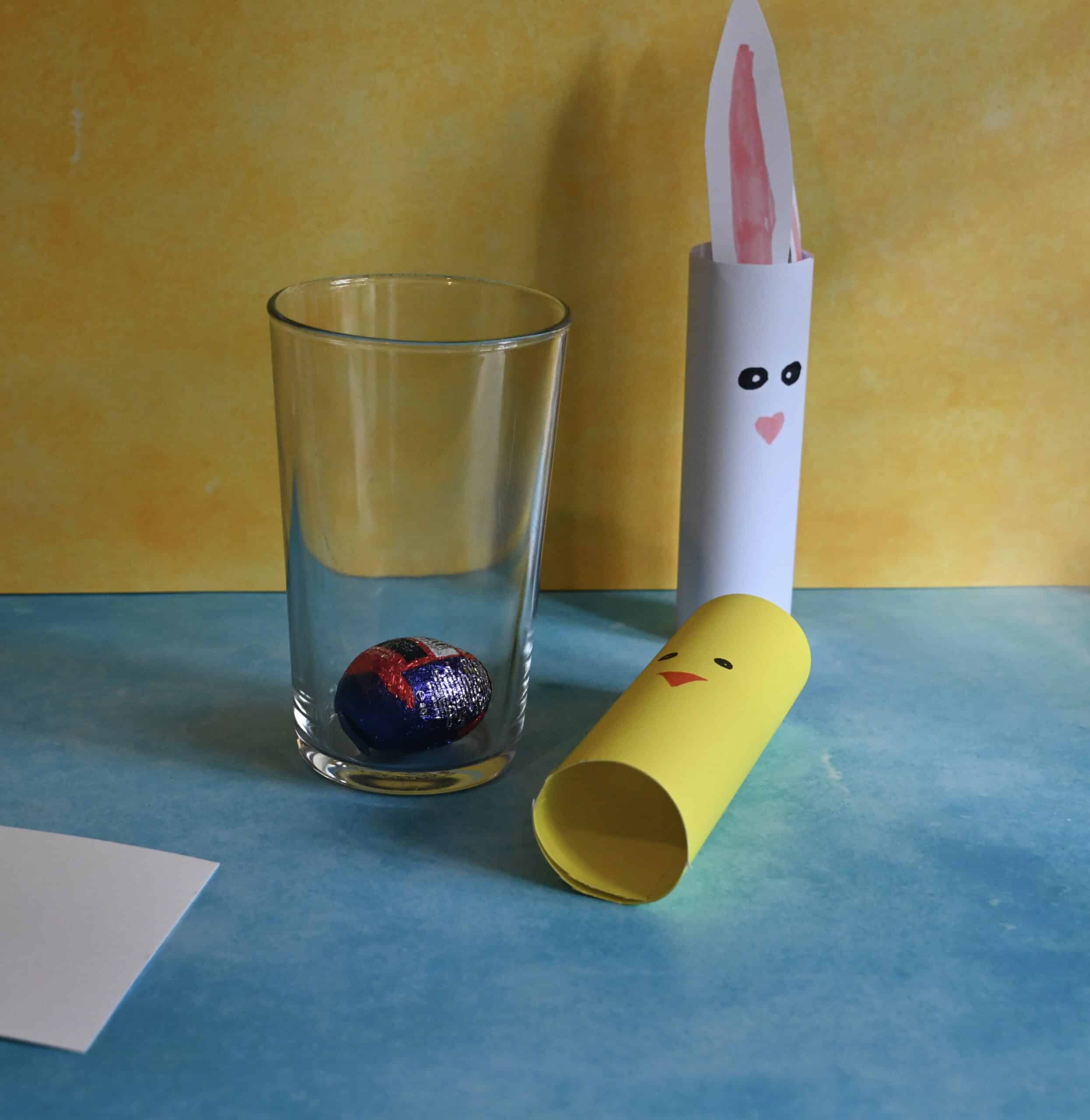
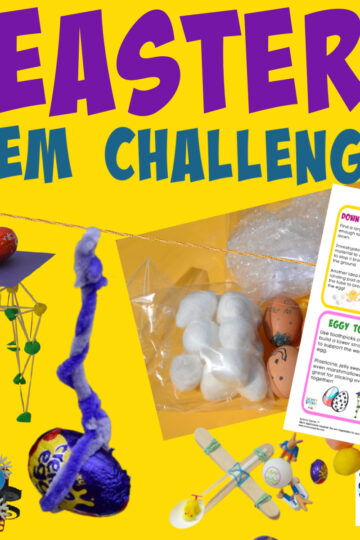
Leave a Reply